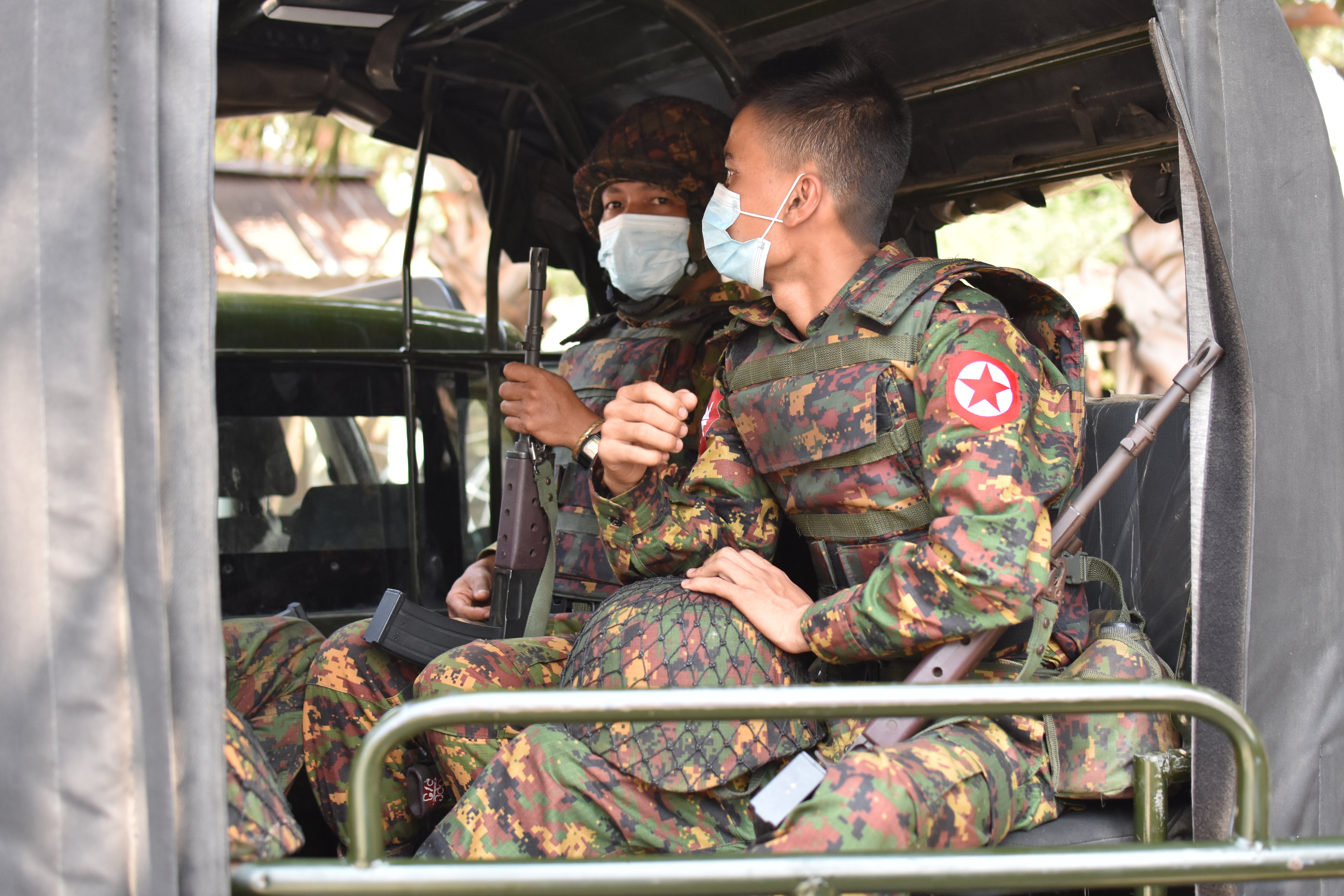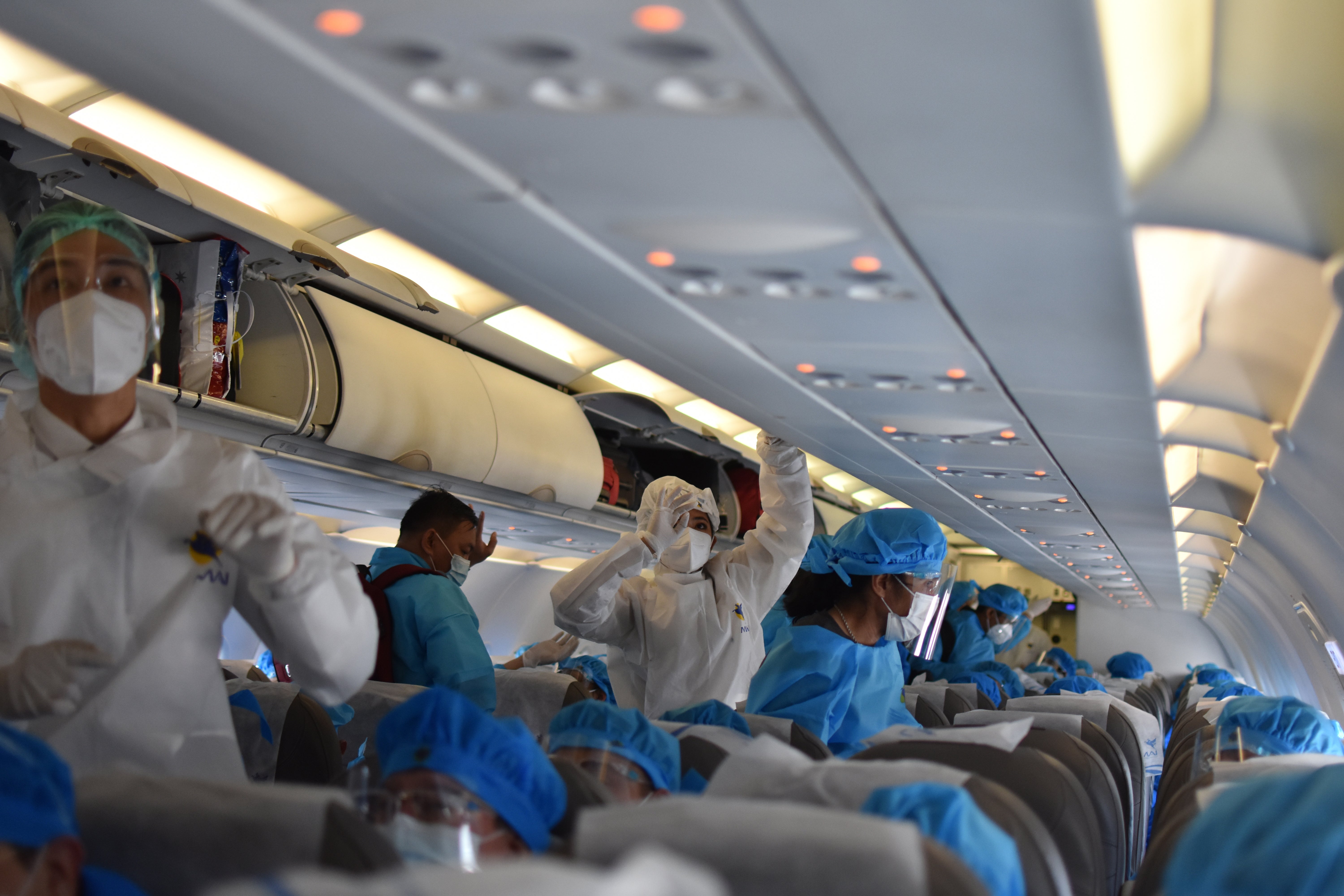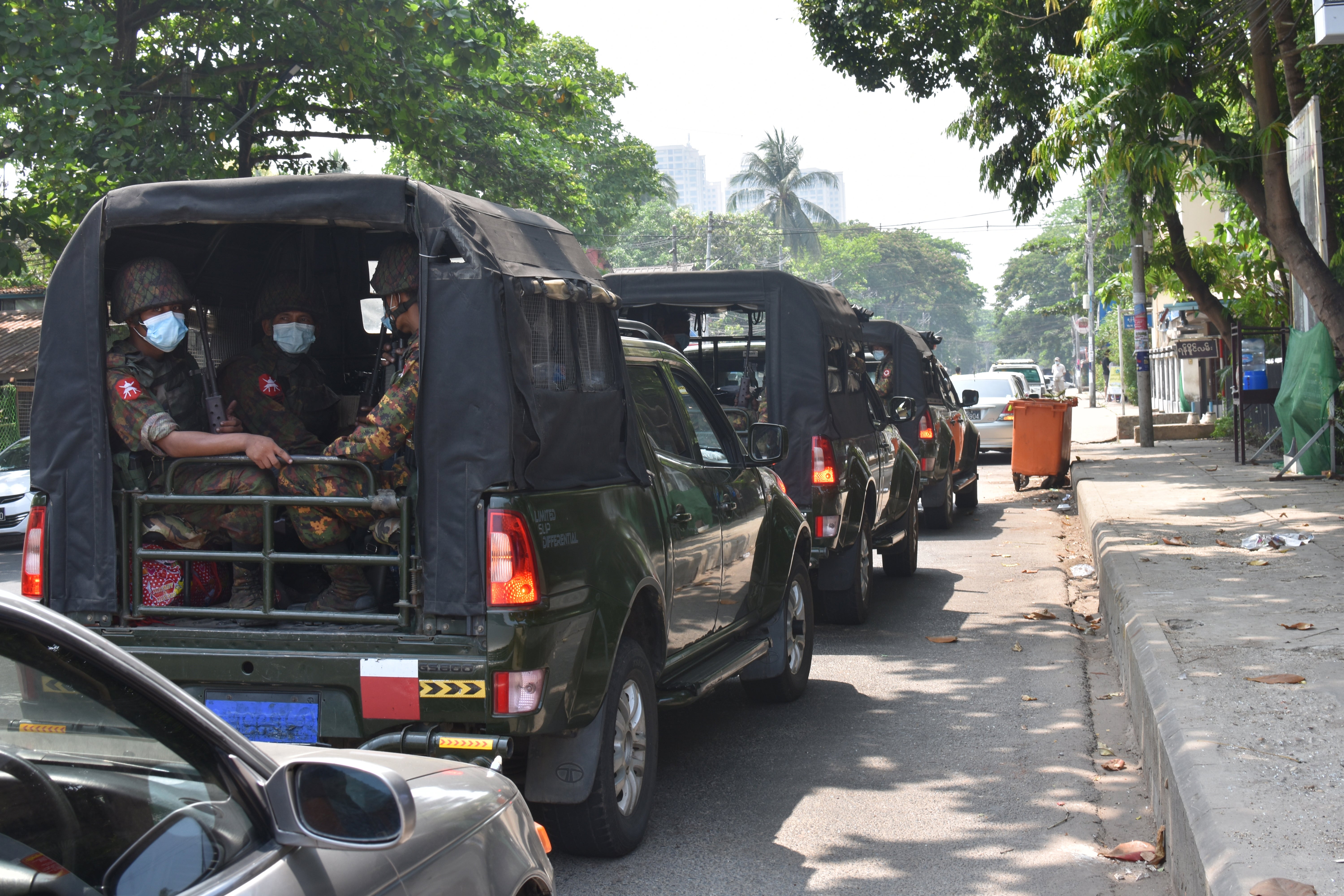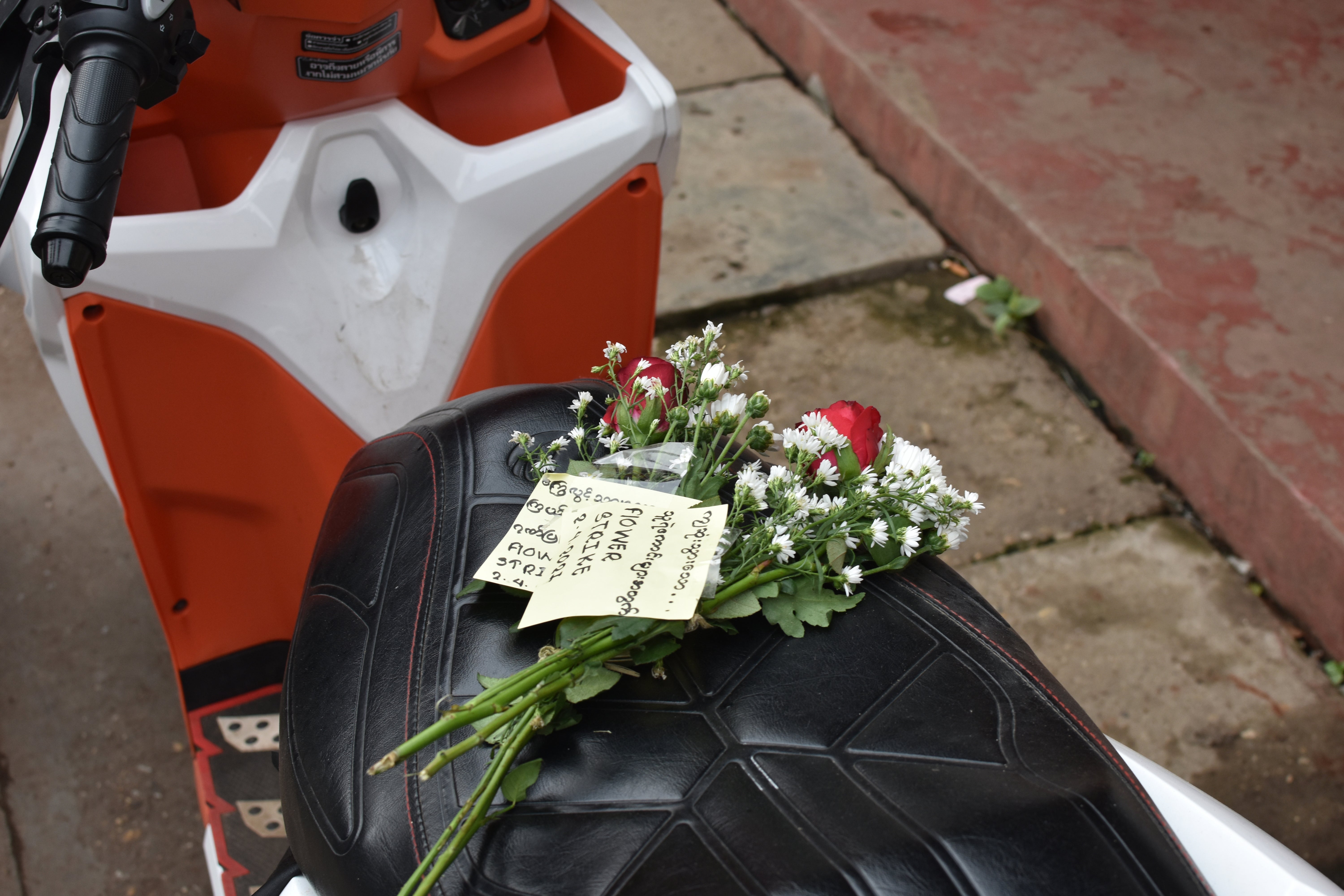‘Why don’t you listen when I speak?’: My week with Myanmar’s violent military junta
When Allegra Mendelson was invited by the regime to see the post-coup situation first-hand, she was sceptical. But it was the only way a foreign reporter could get into the country

“Why don’t you come see for yourself?” asked the foreign lobbyist who had recently been hired by Myanmar’s new military junta.
Ari Ben-Menashe and I had been speaking for a separate article I was writing on southeast Asian nations’ involvement in Myanmar. Working for the military regime that ousted the elected government in February, he belittled the size of anti-coup protests and said he wanted me to see the situation first-hand. I was sceptical but intrigued by the proposal – and it was the only way a foreign reporter could get into Myanmar. Ben-Menashe, a Canadian-Israeli public-relations operative, is known for representing regimes no one else will touch, including those of one-time Zimbabwe strongman Robert Mugabe and Sudan’s new military leaders.
A few days later, after I sent over a copy of my passport, he called to say my request had been submitted to the “highest of levels” of Myanmar's military regime. By 25 March, I had a single-entry business visa, and would become one of four Western journalists to participate in the junta’s first attempt at international outreach since the coup.
Read More:
The week-long trip, which I made alongside a crew from CNN, became a clumsy attempt by the regime to remake its global image. As with its effort to whitewash a scorched-earth campaign against rohingya Muslims, the Myanmar military is turning to propaganda, as the world condemns it for a crackdown on protesters in which more than 600 people have been killed.
I landed in Yangon on 30 March on a relief flight from South Korea. I had been expecting a handful of aid workers on the plane. Instead, it was nearly full, occupied by people from Myanmar – some returning to be reunited with family, others to stand in solidarity with the protest movement.
For the duration of our trip, these escorts monitored our every move, with cameras and phones raised to record us
Even before I entered the country, it was clear that this was not a normal assignment. Ben-Menashe – or his assistant – would call me regularly in the lead-up to the trip to reprimand me for asking questions about the itinerary or safety protocols.
“Why don't you listen when I speak?” Ben-Menashe growled at me during one particularly angry call. “Are you a child? Do you need permission from your parents?”
Then, from the moment we landed in Yangon, we were barred from moving around freely. I corresponded digitally with high caution, using only a burner (short-term use) phone connected to a VPN, concerned that all communications were closely monitored. In the end, it didn’t matter: after our first day in Yangon, wifi across the city was turned off, probably to limit what we could share online.
We were escorted around Yangon by soldiers – first in uniform, then later in civilian clothing. For the duration of our trip, these escorts monitored our every move, with cameras and phones raised to record us. They even tried following us into bathrooms at times. Our military liaison told me this was for “our own safety”, to protect us against the “violators”, the term used by the military for the protesters.
It was also clear that the military wanted to claim transparency by showcasing the presence of international media. When we tried to photograph our military handlers, however, they would turn their heads. Attachment to this trip was not something that defence ministry staffers seemed to want recorded. After a photo of one of our minders was posted on Facebook, he was pulled from our convoy.
The caravan of soldiers immediately aroused suspicion among those we drove past. I managed to remain anonymous, but news of CNN’s presence quickly made international headlines.

On our first two days, we were taken to locations carefully selected to showcase instances of violence on the part of protesters. Myanmar’s demonstrators have been overwhelmingly peaceful, but some have turned to more radical action they believe is necessary to counter bloodshed by the military. We visited three township administration offices in northern Yangon, as well as several of the factories that had been reportedly burnt down by protesters. This included the Gandamar superstore in Mayangone township in Yangon, still smoking when we arrived.
At each stop, we were met by individuals with seemingly rehearsed tales of being attacked or defamed by protesters. The stories were often hard to believe, with changing timelines and little evidence. In several instances, the language employed, especially the use of the phrase “human-rights violations”, seemed crafted to appeal to our sensibilities as foreign reporters.
On our last day in Yangon, we were taken to 10-Mile Market in Insein township and were finally exposed to a scene that more closely resembled the truth.

Shortly after we arrived, a rumble began. Within seconds, the previously quiet street was filled with the sound of people banging on pots and pans, an act of anti-military disobedience that had become common across Myanmar since the coup. As the noise grew, I saw that nearly everyone around was holding up the three-finger salute that has become a symbol of the protest movement.
A man stopped in front of me and explained what they were doing.
“We beat the drums against the military coup – this is our symbol. All Myanmar people don’t like the military coup. They want an elected government – the government of Aung San Suu Kyi,” said the 60-year-old retired seaman, referring to the ousted civilian leader.
A young woman began to cry as she told me about what was unfolding in her country. She knew the risk of speaking with me, but said it was more important for her to share her truth. Both she and the man spoke on the condition of anonymity because of safety concerns.

“Please help us – we really need it,” the woman said. “They are covering up the truth. The military wants to show fake news to the world.”
Soon after we left the market, we learnt that two people who had spoken to the CNN crew had been arrested. This number would increase to 11 as the trip went on; most were eventually released.
According to Ben-Menashe, even the military was upset by the arrests, because they overshadowed the rest of the tour.
“They shouldn’t have been arrested in the first place,” he admitted. “It was a local idiot cop that did it, and when the higher-ups learnt about it, they were immediately released.”
After Yangon, we drove to Naypyidaw, Myanmar’s ghost-town capital that, even pre-coup, had a dystopian air. Fog rolled in as we drove down a 12-lane highway. It was still the dry season in Myanmar, yet a storm had descended on the capital and it was raining heavily.
Our time in Naypyidaw had been planned around an interview with the military’s spokesman, Maj Gen Zaw Min Tun, who maintained the false justification for deadly violence against protesters that had been repeated to us throughout the tour. We repeatedly asked our liaison and Ben-Menashe to speak to other members of the military, especially those at the highest levels; each request was denied or went unanswered.
Read More:
“The protesters, in violent manners, have blocked the streets and thrown stones at the police,” said Zaw Min Tun. “At this time, we had to take necessary action against these violent protesters.”
By the end of the trip, the news of those detained for speaking to CNN dominated the narrative, rather than the military’s version of events. For me, what remain most poignant are the voices of people who spoke out against the regime – in person, from balconies, in cars and online.
“Please report back our real stories,” one woman cried out to us.
Reporting for this article was supported by the Pulitzer Centre on Crisis Reporting. It was co-published with Phnom Penh-based publication Southeast Asia Globe
© The Washington Post
Join our commenting forum
Join thought-provoking conversations, follow other Independent readers and see their replies
Comments
Bookmark popover
Removed from bookmarks